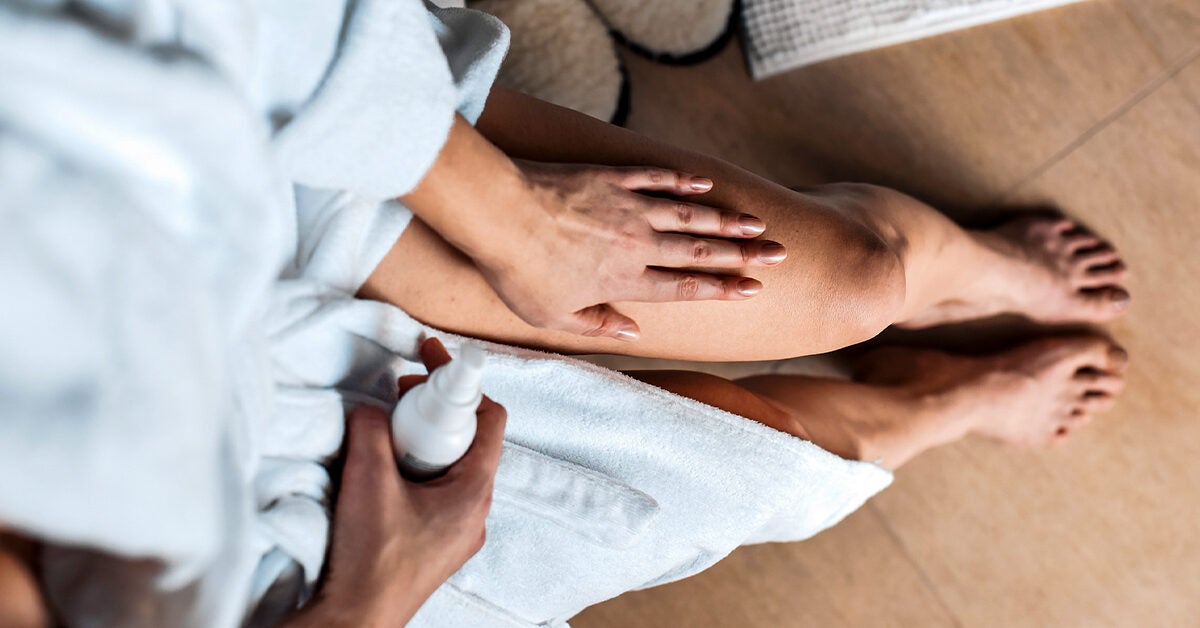Pictures of Psoriasis and Eczema by Type, When to See a Doctor - Healthline

Psoriasis and eczema are both skin conditions that have similar symptoms, including skin irritation and inflammation. Some kinds can cause discolored or hyperpigmented skin.
The symptoms of psoriasis and eczema may look the same, but they have different causes. Psoriasis is an autoimmune condition that causes skin cells to build up and become inflamed. Eczema is usually caused by reactions to irritants, allergens, or triggers like stress or dehydration.
And they don't always appear at the same times. While psoriasis is more common when you're an adult, eczema tends to show up more frequently in children.
Check out our gallery below to learn how to spot different types of psoriasis and eczema — and how to tell them apart based on their unique symptoms.
Pictures of psoriasis
Psoriasis is an autoimmune condition resulting from your white blood cells mistakenly attacking skin cells instead of bacteria or other infectious substances.
There are several types of psoriasis:
- Plaque psoriasis results in patches of inflamed, scaly skin that have a white or silver appearance. It tends to show up on your scalp, knees, or elbows.
- Pustular psoriasis shows up as large areas of reddish or purplish inflamed skin covered in white blisters filled with pus. It's most common on your feet or hands.
- Inverse psoriasis causes skin inflammation that looks shiny and red. It's common in areas like your armpits and groin.
- Nail psoriasis shows up as grooves or pits, as well as noticeable changes in color in your fingernails or toenails. You may also see what looks like blood underneath the nails.
- Guttate psoriasis results in relatively small spots that look pink or purple. They tend not to look as scaly or thick as other types of psoriasis. It usually shows up on your legs, arms, or torso.
- Erythrodermic psoriasis causes severe, burned-looking skin that's widespread, and may result in large areas of skin peeling off. You may also experience a fever with this type.
- Scalp psoriasis shows up as itchy, scaly patches of skin on your scalp that may look pink, red, dark brown, or purple.
Pictures of eczema
Eczema is a skin condition that's caused by a reaction to an irritation, allergen, or other trigger.
Some of the most common types of eczema include:
- Atopic dermatitis, the most common type of eczema, causes large, discolored rashes or clusters of small bumps that can ooze fluid if you scratch them too much.
- Contact dermatitis causes skin to be irritated, red, and scaly after you're exposed to an irritant like chemicals or certain metals. Blisters full of fluid may leak and leave crusts behind.
- Dyshidrotic eczema results in itchy blisters filled with fluid on your feet or hands. Your skin may also become scaly or cracked.
- Seborrheic dermatitis causes oily and scaled areas of skin around the scalp, upper back, or nose that shed flakes. It's called cradle cap when it happens to young children.
- Neurodermatitis causes scaly patches of itchy skin on numerous parts of your body that may bleed if you scratch them too much and increase your risk of an infection.
- Nummular eczemaresults in itchy, scaly round spots on your skin. This type is common after getting bit by an insect or having a reaction to an irritant like chemicals.
- Stasis dermatitis shows up as itchy, swollen skin around your legs. It's especially common if you have varicose veins.
- Hand eczema causes rashes, blisters, and cracked or discolored skin on your hands and wrists. This type may be linked to one of the other types, such as atopic or contact dermatitis.
What causes psoriasis and eczema?
Psoriasis and eczema have different causes despite having very similar symptoms.
Psoriasis
Psoriasis happens because your
It's thought that psoriasis is a
Eczema
Eczema is usually triggered by exposure to an allergen or irritant. A 2020 study suggests that the bacteria Staphylococcus aureus may cause atopic dermatitis. But eczema isn't typically linked to an underlying condition or disorder.
Researchers aren't sure about the source of eczema. It can happen to several members of a family and has been linked to a
How do I know if I have psoriasis or eczema?
Here are some tips on telling psoriasis and eczema apart.
| Psoriasis | Eczema | |
|---|---|---|
| Common symptoms | thick, raised, scaly skin | dry, scaly, itchy skin |
| Colors | red, purple, or white depending on skin color | reddish or darkened skin depending on skin color |
| Goes away on its own? | no (autoimmune) | only when it's triggered by allergens or irritants, and you avoid them |
| Common locations | knees, navel, elbows, feet, hands, legs, and arms | inside of arms or knees where they bend, face, neck, and hands |
When to contact a doctor
Consider getting medical help if you have any of the following symptoms:
- extreme pain, itching, or discomfort that makes it hard to sleep or do daily tasks
- irritated patches of skin that spread far beyond where they start
- pus that looks white or discolored
- crusting around old blisters that results in scarring or skin damage
- frequent flare-ups of symptoms
- skin irritation or inflammation that doesn't get better with over-the-counter creams or ointments
- fever along with skin symptoms
You may also want to contact a doctor if you notice symptoms after you have sex with a partner who may have received a diagnosis of herpes, especially if symptoms appears around your mouth or genital area.
Takeaway
Psoriasis and eczema may have similar symptoms, but there are many different types with symptoms that you may be able to learn to recognize.
Contact a doctor if you have a frequent and severe flare-ups of these symptoms that disrupt your ability to sleep or do daily activities.
Comments
Post a Comment